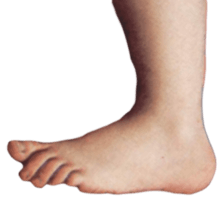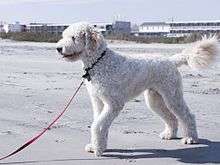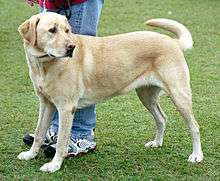pes
Catalan
Etymology
From Old Occitan pes, from Vulgar Latin *pēsum, from Latin pensum.
Derived terms
Related terms
Further reading
- “pes” in Diccionari de la llengua catalana, segona edició, Institut d’Estudis Catalans.
Czech
Pronunciation
- IPA(key): /pɛs/
audio (file) - Rhymes: -ɛs
Declension
Antonyms
- (male dog): fena
Derived terms
Derived terms
- hlídací pes
- honicí pes
- chování řeznického psa
- mnoho psů, zajícova smrt
Further reading
Etymology 2
Latin

pēs hūmānus (human foot)

pēs equī (foot of a horse)
Etymology
From Proto-Indo-European *pṓds (compare Sanskrit पद् (pád), Ancient Greek πούς (poús) and Old English fōt, English foot).
Pronunciation
- (Classical) IPA(key): /peːs/
Audio (Classical) (file)
Noun
pēs m (genitive pedis); third declension
- a foot, in its senses as
- (anatomy) a human foot
- … ne manus, nec pedes, nec alia membra …
- … not the hands, not the feet, and not the other limbs …
- (zoology) any equivalent body part of an animal, including hooves, paws, etc.
- (units of measure) any of various units of length notionally based on the adult human foot, especially (historical) the Roman foot.
- (poetry) a metrical foot: the basic unit of metered poetry
- (geography) the base of a mountain
- (furniture) the bottom of a leg of a table, chair, stool, etc.
- (anatomy) a human foot
- (figuratively) a place to tread one's foot: territory, ground, soil
- (nautical) a rope attached to a sail in order to set
- (music) tempo, pace, time
- (botany) the pedicel or stalk of a fruit
Declension
Third-declension noun.
| Case | Singular | Plural |
|---|---|---|
| Nominative | pēs | pedēs |
| Genitive | pedis | pedum |
| Dative | pedī | pedibus |
| Accusative | pedem | pedēs |
| Ablative | pede | pedibus |
| Vocative | pēs | pedēs |
Hyponyms
- (metrical foot): trochaeus; pes dissyllbus or disyllbus, pes bibrevis, choreus, jambus, spondeus, spondius, spondeos (2-syllable feet); pes trisyllabus, amphibrachus, amphibrachys, amphimacrus, dactylus, extensipes, molossus, pes anapaestus, pes antanapaestus, pes antibacchius, pes bacchius, pes creticus, pes hippius (3-syllable feet); pes tetrasyllbus, antispastus, chorjambus, dichoreus, dijambus, dispondeus, epitritus, paeon, proceleumaticus, proceleusmaticus (4-syllable feet); pes pentasyllbus, dochmius, mesobrachys, mesomacros, pariambodes, probrachys, pes amoebaeus, pes antamoebaeus, pes orthius (5-syllable feet)
Meronyms
- (unit of length): decempeda (10 pedes)
See also
- pede tellūrem pulsō
- pedem effero
- pedem fero
- pedem refero
- pedes navales
- si in fundo pedem posuisses
- a pedibus usque ad caput
- alterno pede terram quatere
Derived terms
- adversipedes
- aenipes
- aeripes
- agipes
- alipes
- anguipes
- antepes
- avipes
- bipeda
- bipēs
- capripes
- celeripēs
- centipeda
- centipes
- citipes
- compes
- cornipes
- decempeda
- decempeda
- fissipes
- flammipes
- flexipes
- gracilipes
- hircipes
- ignipes
- lanipes
- latipes
- lentipes
- levipes
- longipes
- loripes
- milepeda
- mollipēs
- multipeda
- octipes
- palmipes
- peda
- pedālis
- pedāneus
- pedārius
- pedātim
- pedātūra
- pedātus
- pedeplana
- pedepressim
- pedēs
- pedetemptim
- pedica
- pedicinus
- pediculus
- pedisequus
- pedō
- pedocucullus
- pedūlis
- pedum
- planipes
- plumipes
- properipes
- quadrupēs
- remipes
- segnipes
- semipes
- septipes
- serpentipes
- sesquipes
- solidipes
- sonipes
- stapēs
- suppes
- tardipes
- tremipes
- uncipes
- unipes
- volucripes
Descendants
- Aromanian: pezã
- Asturian: pie
- Corsican: pede
- Dalmatian: pi
- English: pes
- Esperanto: piedo
- Extremaduran: pie
- Franco-Provençal: pied
- Old French: pié
- Friulian: pît
- Gallurese: pedi
- Ido: pedo
- Interlingua: pede
- Istriot: peîe, pèie
- Italian: piede
- Leonese: pía
- Ligurian: pê
- Mirandese: pie
- Mozarabic: péde
- Navarro-Aragonese: pie, pied
- Aragonese: piet
- Neapolitan: pere
- Norman: pid, pyid
- Old Occitan: pe
- Old Portuguese: pee
- Old Spanish: pie
- Spanish: pie
- Piedmontese: pe
- Romanian: piez
- Romansch: pe
- Sassarese: pedi
- Sardinian: pee, pei
- Sicilian: pedi, peri
- Venetian: pìe, piè, pè
References
- pes in Charlton T. Lewis and Charles Short (1879) A Latin Dictionary, Oxford: Clarendon Press
- pes in Charlton T. Lewis (1891) An Elementary Latin Dictionary, New York: Harper & Brothers
- pes in Charles du Fresne du Cange’s Glossarium Mediæ et Infimæ Latinitatis (augmented edition, 1883–1887)
- pes in Gaffiot, Félix (1934) Dictionnaire Illustré Latin-Français, Hachette
- Carl Meissner; Henry William Auden (1894) Latin Phrase-Book, London: Macmillan and Co.
- to begin a journey (on foot, on horseback, by land): iter ingredi (pedibus, equo, terra)
- to go on foot: pedibus ire
- to trample under foot: pedibus obterere, conculcare
- to have the gout: ex pedibus laborare, pedibus aegrum esse
- to vote for some one's motion: discedere (pedibus), ire in alicuius sententiam (Liv. 23. 10)
- to serve in the cavalry, infantry: equo, pedibus merere (Liv. 27. 11)
- (ambiguous) a hand-to-hand engagement ensued: tum pes cum pede collatus est (Liv. 28. 2)
- (ambiguous) to fall at some one's feet: ad pedes alicuius accidere
- (ambiguous) to throw oneself at some one's feet: ad pedes alicuius se proicere, se abicere, procumbere, se prosternere
- (ambiguous) to prostrate oneself before a person: ad pedes alicuius iacēre, stratum esse (stratum iacēre)
- (ambiguous) to fail to see what lies before one: quod ante pedes est or positum est, non videre
- (ambiguous) to never set foot out of doors: domo pedem non efferre
- (ambiguous) to cross the threshold: pedem limine efferre
- (ambiguous) a hand-to-hand engagement ensued: tum pes cum pede collatus est (Liv. 28. 2)
- (ambiguous) hand to hand: collato pede (Liv. 6. 12)
- (ambiguous) to retire (without turning one's back on the enemy): pedem referre
- to begin a journey (on foot, on horseback, by land): iter ingredi (pedibus, equo, terra)
- pes in Harry Thurston Peck, editor (1898) Harper's Dictionary of Classical Antiquities, New York: Harper & Brothers
- pes in William Smith et al., editor (1890) A Dictionary of Greek and Roman Antiquities, London: William Wayte. G. E. Marindin
Middle English
Old French
Noun
pes f (oblique plural pes, nominative singular pes, nominative plural pes)
- Alternative form of pais (“peace”)
- circa 1250, Marie de France, Guigemar
- Va t'en de ci ! Lai me aveir pes.
- Go, leave me! Let me have peace.
- Va t'en de ci ! Lai me aveir pes.
- circa 1250, Marie de France, Guigemar
Slovene

Velik bel pes - A large white dog
Etymology
From Proto-Slavic *pьsъ.
Pronunciation
- IPA(key): /pə́s/
Noun
pə̏s m anim (female equivalent psíca)
Tok Pisin
Noun
pes
- (anatomy) face
- 1989, Buk Baibel long Tok Pisin, Port Moresby: Bible Society of Papua New Guinea, 3:19:
- (please add an English translation of this quote)
-
This entry has fewer than three known examples of actual usage, the minimum considered necessary for clear attestation, and may not be reliable. Tok Pisin is subject to a special exemption for languages with limited documentation. If you speak it, please consider editing this entry or adding citations. See also Help and the Community Portal.
This article is issued from
Wiktionary.
The text is licensed under Creative
Commons - Attribution - Sharealike.
Additional terms may apply for the media files.
